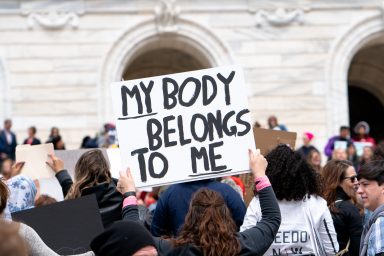Instead of a commemoration of the fifth anniversary of a success for democracy, here is a look at how and why Florida Republicans overturned the will of their voters and undermined the intent of Amendment 4.
|
Listen To This Story
|
Today should be a joyous anniversary in the Sunshine State. Five years ago to the day, Floridians went to the polls to weigh in on whether the voting rights of most felons should be restored once they had completed their sentences.
Overwhelmingly, they said “Yes” to Amendment 4, and that should have allowed more than 1 million people to no longer be disenfranchised and instead be allowed to cast ballots once again.
But Gov. Ron DeSantis and the Republican state Legislature had other plans.
They refused to comply with the will of the voters and erected one obstacle after another to prevent it from being enacted.
And that is how, instead of becoming an example of how to increase voter participation, Amendment 4 became a case study on voter suppression.
So, instead of a commemoration of the anniversary of a success for democracy, here is a look at how and why the opposite happened.
First, let’s look at the language voters saw on the ballot for the amendment:
This amendment restores the voting rights of Floridians with felony convictions after they complete all terms of their sentence including parole or probation. The amendment would not apply to those convicted of murder or sexual offenses, who would continue to be permanently barred from voting unless the Governor and Cabinet vote to restore their voting rights on a case by case basis.
It’s pretty straightforward. There is no way the intent of the amendment wasn’t clear to the nearly two-thirds of Floridians who voted in favor of it.
However, Republicans knew that restoring the voting rights of former felons would be bad for them because that group of people disproportionately consists of minorities who tend to vote for Democrats.
That’s why DeSantis and his allies devised a plan: They drafted legislation that would forbid returning citizens from voting unless they paid off certain legal financial obligations, such as fees and fines.
In the good old days of voter suppression, this was known as a poll tax.
However, even though that law subverted the intent of the amendment, it was eventually upheld, meaning that nothing changed for many of the people for whom Floridians wanted voting rights restored.
But that wasn’t the only problem. Because voter suppression isn’t just about writing legislation that disenfranchises certain voters; it’s also about intimidating those who are eligible to vote.
And that was the next step in this case.
If you don’t follow politics closely, you probably would have heard about Amendment 4 passing five years ago, but you might not have heard about all of the efforts to invalidate it.
As a result, hundreds of thousands of former felons who had completed their sentences and probations believed that they could once again cast ballots.
That’s also because Florida election officials didn’t really make any attempts to explain to them what was happening or to make it clear who was or wasn’t eligible under the new law.
As a result, some people ended up voting who, according to the intent of the amendment, should have been allowed to cast a ballot but according to the GOP’s law were not.
And next thing they knew, even though they had only made an honest mistake, DeSantis sicced his “election police” on some of these voters and arrested them in high-profile raids that, even if the former felons had intended to commit a crime, would have been totally disproportionate to the offense.
It does not take a genius to figure out that the raids had a chilling effect on former felons. Put yourself in their shoes: You watch TV and see people like you getting arrested for simply trying to vote. All of a sudden, you’re no longer sure if you really are eligible to cast a ballot, and why risk it if that means having uniformed goons show up and the possibility of going back to prison?
Of course, when the cases DeSantis’s government brought started being dismissed, that received much less news coverage.
In other words, mission accomplished if you wanted to prevent former felons from voting and completely upend the will of the voters.
It’s almost as though that happened by design.




